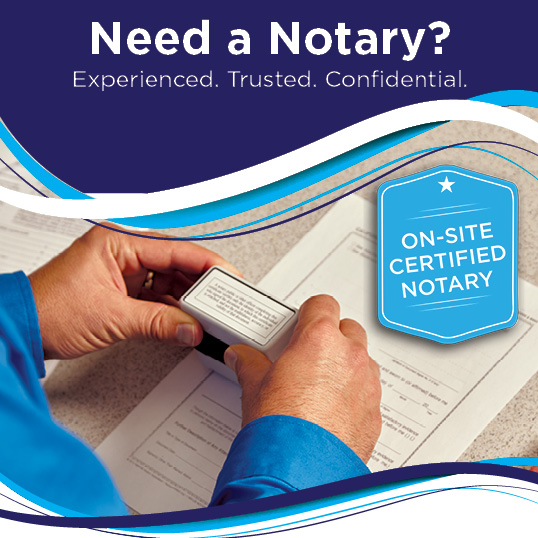Navigating DIRCO Requirements: Compliance and Diplomatic Relations
Navigating DIRCO Requirements: Compliance and Diplomatic Relations
Blog Article
Essential Overview to Notarial Work: Whatever You Need to Understand About Notary Solutions
In the world of legal documentation and verification, notarial work stands as a vital pillar of honesty and depend on. Whether you are a seasoned notary public or considering entering this prestigious profession, recognizing the ins and outs of notarial responsibilities and the nuances of notarized records is extremely important. The world of notary solutions is an interesting tapestry of legal needs, honest criteria, and thorough procedures that form the foundation of lots of transactions. As we begin on unraveling the necessary guide to notarial work, allow's explore the vital facets that specify this essential facet of the legal landscape.
Comprehending Notarial Obligations
Notaries play an essential function in confirming the credibility of lawful records. As impartial witnesses, notaries certify the signing of essential papers to stop fraud and guarantee the credibility of the papers included. Comprehending notarial obligations is crucial for both the notary public and the people involving their solutions.
Notarial duties incorporate a series of obligations that differ relying on the territory. Notaries have to validate the identifications of the notaries, verify that they are signing willingly and knowingly, and ensure that they understand the contents of the record. In addition, notaries are accountable for inspecting the legitimacy of the file and confirming that it meets all the essential needs for it to be considered legitimate.
Kinds of Notarized Files
Various legal records need notarization to validate their credibility and make sure compliance with relevant regulations and laws. One typical kind of notarized document is a power of lawyer, which grants a person the lawful authority to act on part of an additional individual in certain issues. Property deals usually entail notarized records, such as acts, home mortgages, and lease arrangements, to provide assurance to all celebrations entailed. In addition, trusts and wills might require registration to avoid disputes over the circulation of assets after a person's death.
Legal testimonies, which are promised declarations made under oath, are often notarized to add reputation and truthfulness to the declaration. Funding documents, including promissory notes and car loan arrangements, are likewise generally notarized to make certain the regards to the funding are clearly understood and set by all celebrations. Adoption papers, marriage certificates, and divorce decrees are examples of important records that typically necessitate notarization to certify their authenticity and lawful legitimacy.
Registration Refine Detailed
The very first action is to provide the file to the notary public and provide recognition to confirm identification. Following this, the notary will complete the notarial certification, which includes the day, the notary's signature, seal, and any various other called for info. The notary will then mark or seal the document to finalize the notarization procedure.
Significance of Notarial Certificates
One essential aspect of the registration process that makes certain the file's lawful validity and credibility is the inclusion of a notarial certification. A notarial certification is a vital component of notarized papers as it works as an official declaration by the notary public validating that the individual signing the record did so willingly and willingly. This certificate usually includes important information such as the day of registration, the name of the look at more info endorser, the sort of recognition provided, and the notary's seal and signature.
By attaching a notarial certificate to a document, the notary public is licensing that the essential treatments were complied with, and the signer's identity was verified. Without a properly implemented notarial certification, the credibility of a file may be called right into inquiry, possibly leading to legal disputes and obstacles concerning its credibility.
Tips for Notary Public Success
Achieving success as a notary public requires a mix of expertise, focus, and professionalism and trust to information. To stand out in this role, it is critical to stay upgraded on notary legislations and regulations. Continually educating on your own on the current adjustments in the area will guarantee you are offering trusted and precise services to your customers.
Maintaining a high degree of professionalism and reliability is crucial to constructing count on with customers. Dressing suitably, keeping a courteous attitude, and respecting customer discretion are all crucial elements of expertise in the notary public profession.

Moreover, outstanding communication abilities are important for a successful notary public. Clearly clarifying the notarization process to customers, responding to any inquiries they might have, and offering clear instructions can assist build a favorable track record and attract repeat business. By concentrating on knowledge, expertise, focus to information, and communication, notaries can improve their success in the area.

Conclusion

Whether you are an experienced notary public or thinking about entering this well-regarded occupation, understanding the ins and outs of notarial responsibilities and the subtleties of notarized documents is vital. Following this, the notary will finish the notarial certification, which includes the day, the notary's signature, seal, and any type of other needed details. A notarial certificate is a critical element of notarized records as it serves as a main declaration by the notary public confirming that the specific authorizing the file did so voluntarily and willingly. By attaching a notarial certificate to a record, the notary public is certifying that the needed treatments were followed, and the signer's identity was confirmed. By adhering to the proper procedures and making use of notarial certificates efficiently, notaries see this here can give valuable services to people and organizations in need of paper confirmation and authentication.
Report this page